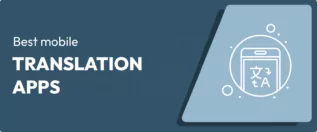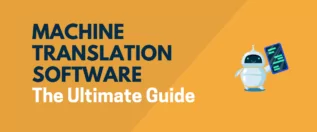
In this post
Translation fails and mistranslations are probably as old as language itself. Ever since humans started speaking have we likely begun misunderstanding each other. Very often, these mishaps are harmless. However, they can also be quite funny and, in certain contexts, even have serious consequences.
To shine a light on these instances, in this post, we have collected a number of humorous mistranslations or failed translation attempts from world history as well as advertising. These examples show how even small nuances can have a big impact in the complexity that is language and lead to many unintended consequences.
Famous Mistranslations in History
We are starting off on a slightly more serious note. Some of the instances below, while funny, happened in contexts in which they could, and sometimes did, have serious consequences.
US President Carter Woos Poland
In 1977, US President Jimmy Carter traveled to Poland for a news conference. Unfortunately, the interpreter provided to him for that occasion was not fully qualified to translate Polish, leading to a number of mistranslations.
First of all, when the president mentioned that he had left the US that morning, the translator relayed it as “when I abandoned the United States,” making it sound as if Carter was never to return. In addition, the president’s desire to “come to learn your opinions and understand your desires for the future” was instead translated to the audience as a strong lust to get to know the Poles in the bedroom. Even Carter’s expression that he was happy to be in Poland was relayed to listeners as him being happy to grasp at Poland’s private parts.

After discovering these incorrect translations, the interpreter was replaced by another. However, things didn’t get much better. At another speaking engagement, the new translator mostly sat silently as he had difficulties understanding Jimmy Carter’s Southern accent and decided to stay quiet rather than making similar mistakes as his predecessor.
You can find the original New York Times article from that time here.
Translation Fails Jimmy Carter Again
It seems like Carter just can’t catch a break when it comes to translation failures. Just a few years after the aforementioned incident, in 1981, he gave a speech at a small college in Japan. He opened with a joke, and after the interpreter relayed it to the crowd, the audience immediately started laughing.
Surprised by that strong reaction, Carter asked the interpreter about it. The translator then reluctantly admitted that he had said, “President Carter told a funny story. Everyone must laugh.” Yeah, that’s not how humor works.
Nikita Khrushchev Threatens to Bury the USA
Another mistranslation from a head of state that caused quite a stir happened in a speech by Nikita Khrushchev in 1956. At a reception at a Polish embassy in front of ambassadors of Western countries, he concluded his talk with an apparent threat by saying, “We will bury you!”, which caused envoys from twelve NATO states and Israel to leave the room.

However, most likely this was caused by a mistranslation. Khrushchev was probably trying to say something more akin to “We will be present at your funeral,” meaning, “We will outlast you.” He was also referring to the victory of socialist over capitalist ideology, not making physical threats. But during the Cold War, you really wanted to choose your words wisely.
Machines Can’t Keep Up With Justin Trudeau’s French
Canadian Prime Minister Justin Trudeau also fell victim to a translation fail when visiting the White House. Americans who watched his speech on ABC TV saw him praising “Nazi innings”, “railroad stations in Motorola,” and talking about “us old guys.”
Giving the speech in French, his comments were automatically translated by a computer program, highlighting the problem that machine translation is not always reliable. You can view the video yourself below.
Martians Made in Italy
One of the oldest mistranslations might have given us the idea of intelligent life on Mars. Back in 1877, Giovanni Schiaparelli, an Italian astronomer, wrote down his observation of what he thought were natural valleys and canals or “canali”, in Italian, on Mars.
Years later, this word was mistranslated as meaning canal-like irrigation systems, causing parts of the scientific community to believe that the red planet was inhabited. Some even wrote books about their theories or Martian society. No, that’s not a joke. You can read the full story here.
Funny Advertising Translation Fails for the Ages
In the modern world, companies increasingly internationally, causing them to translate their products, services, and marketing campaigns into different languages. If you think that this would be an area rife with embarrassing (and hilarious) mistranslations, you’d be correct. Here are a few of the best ones.
Mercedes: Cars to Die For
Western companies entering the Chinese market face unique challenges. Besides having their websites translated into Chinese, they need to get their names converted into an entirely different alphabet.

China famously uses characters, not letters, and each character is pronounced as one syllable and has its own meaning. As a consequence, when translating brand names into Chinese, companies need to find characters that not only imitate the sound of their name but also have a meaning that makes sense. This process, known as transcreation or localization, has invited a number of translation fails over time.
One such mistranslation was the transliteration of the Mercedes-Benz brand name. It was first rendered as 奔死 (pronounced “bēnsǐ”), which sounds similar to “Benz.” Unfortunately, the characters chosen can mean as much as “to rush to die,” which is not really something you want to associate with your cars.

By now, the car manufacturer is using the characters 奔驰, which are pronounced “bēnchí” and mean as much as “to run quickly” or “to speed,” conveying a much more appropriate meaning. It’s stuff like this that makes Chinese one of the hardest languages to translate.
Would You Like Fingers With That?
Here’s another translation fail from the Far East. Kentucky Fried Chicken ran into some problems with their famous slogan “Finger lickin’ good.” Unfortunately, the Chinese version initially said “Eat your fingers” (吃手指) instead. Time to remove Hannibal Lecter from the board of directors it seems.
Coca-Cola Greets Death
When Coca-Cola wanted to appeal to the native population of New Zealand, they translated their slogan “Hello, mate” into Maori, or at least they tried. Unfortunately, they only replaced the “hello” part, turning it into “Kia ora, mate.”

Apparently, whoever did the translation didn’t know that in Maori, “mate” means “death,” giving the whole thing a slightly different meaning. Well, soft drinks are not considered good for your health, so there might be something to it. However, that’s probably not what the company intended.
Now Available: The Mitsubishi “Wanker”
Another case of translation fail in advertising happened to Mitsubishi. In 1982, they started selling a car model named “Pajero,” named after the Pampas cat, whose Latin name is “Leopardus pajeros”.
So far, so good.
Unfortunately, in Spanish, the word “pajero” means “wanker”, which usually isn’t something you want to write on your car. For that reason, Mitsubishi renamed the car to “Moderno” for the Spanish, Northern and Latin American markets. Probably a good idea.
Compensating for Something?

Continuing with the theme of unfortunate car names, Ford released the “Pinto” in the 1970s. Sales in Brazil, however, were likely disappointing.
The reason?
“Pinto” is a word in Brazilian Portuguese slang that denotes male genitalia.
Nike: Just Gain Weight
More stories from China. In 2016, Nike published a special edition of their Air Force 1 sneakers that could be customized with two characters, 發 (“fā”) and 福 (“fú”).

Separately, they mean good things, such as “to get rich” and “good fortune.” However, if you put them together, the meaning slightly changes. 發福 means “fat” or “to gain weight” in Chinese, quite the opposite of what you want to achieve with sports sneakers.+
Ford, at It Again
Ford put their foot into it again more recently. A few years ago, they launched an ad campaign that stated that “Every car has a high-quality body.” You know, as in the body of the car.
However, it took on a slightly different meaning when translated for Belgium. Here, the slogan said something more akin to “every car has a high-quality corpse.” Unless you are targeting med students or selling hearses, that’s probably not what you want to say about your vehicles.
Parker Pen – Writing Utensils With Birth Control
Here’s another instance in which the translation of an advertising slogan went awry. Parker Pen were marketing a leak-proof pen with the slogan “It won’t leak in your pocket and embarrass you.”

When translating the slogan into Spanish, apparently the translator was fooled by a false friend (one of the things that make translation difficult) and translated “embarrass” with the Spanish “embarazar.” Unfortunately, though they sound alike, “embarazar” actually means “to impregnate.”
So, Parker Pen promised that their writing utensil would not leak in your pocket and get you pregnant. What a relief!
Nokia and Mazda Whoring for Capitalism
Apparently, Spanish is full of language pitfalls (even though it’s one of the most used languages on the Internet). Nokia also ran into a problem with one of their phone model names, the “Lumia.” Apparently, that word can mean “prostitute” in Spanish.
A similar thing happened with the Mazda “Laputa.” I’ll let you figure that one out yourself.
Milk Gets Uncomfortably Personal
The “Got milk?” campaign by the American Dairy Association was one of the most successful marketing campaigns out there. It featured well-known celebrities and one of the most widely recognized slogans.
However, in their marketing campaigns targeting the Spanish-speaking population, they went without their usual catchphrase.
How come?
Because when translating it word for word into “¿Tienes leche?”, what you are actually asking is “are you lactating?”. And that’s not really the kind of milk they intended to talk about.
For that reason, the campaign went with alternative slogans such as “Toma leche” (“drink milk”) and “Familia, Amor y Leche” (“Family, Love and Milk”).
HSBC Does Nothing
The HSBC bank got into some hot waters with the internationalization of their slogan as well. They asked their clientele to “Assume nothing” in relation with their services.
Unfortunately, the slogan ended up mistranslated. In several countries it said “Do nothing” instead.
While that is generally not the worst advice, it’s not not really what you want to stand for as a bank. It cost HSBC $10 million to rebrand.
Electrolux Sucks
You might think the above heading is a bit offensive, however, that’s what Electrolux said about themselves.
Don’t believe me? I can prove it. Their slogan was literally “Nothing sucks like Electrolux.”

Apparently, when the Swedish company launched the campaign in the 1970s, “sucking” didn’t have the same meaning as “being really bad at something,” at least not in the UK. Here, the campaign was a big success. However, it took on a different life when extended to the US market.
Tonic Water = Toilet Water?
Schweppes ran into some mistranslation problems when their advertising failed to gain traction in Italy. Apparently, their tonic water was suggesting that it contained ingredients from the toilet.

How could that happen?
The problem lay in the fact that Schweppes decided not to translate “Tonic Water,” which it also doesn’t do in many other markets. However, the Italian word “water” can, in colloquial speech, also mean “toilet bowl.”
Anyone up for a toilet tonic? Me neither.
An Unfortunate Domain
This one is not so much a translation fail as it is an apparent failure in language familiarity. An Italian company selling battery chargers needed a new web domain for its international website. They wanted to go for a .com top-level domain but still make it clear in the domain their country of origin.
What was the result?
Welcome to powergenitalia.com. I don’t think there is a need for me to explain this. Needless to say, the company changed to the more harmless powergen.it later.
General Electric Has Gas
The final example shows that it’s not always about translation or using the wrong word; sometimes, pronunciation can also become a problem.
In 1988, the US company General Electric launched a new partnership brand in Europe and named it “GPT.” This all seems harmless, professional, and unproblematic unless you speak French and realize that, in French, GPT is pronounced “J’ai pété.”
Why is that a problem?
Because it means “I farted.” Enough reason to change the brand name to “GPTel” in France.
I wonder how ChatGPT feels about this, especially considering that “chat” is the word for male cat in French. So, in France, ChatGPT basically sounds like you are confessing to your cat about a recent flatulence.
Bonus Translation Fail
Here is another example of a translation fail. It is entirely fictional, however, it’s also one of my favorite jokes, so you get it as a bonus.
Avoid Translation Fails on Your Website With TranslatePress
As we have seen above, everyone fails at translation sometimes. However, when trying to offer your WordPress website in more than one language, it shouldn’t be because of your translation plugin. For that reason, we want to take a moment to talk about how our plugin TranslatePress makes website translation really easy.
TranslatePress Multilingual
Translate Your Web Pages With Ease
In TranslatePress, you do pretty much all the translation work in the same easy interface.
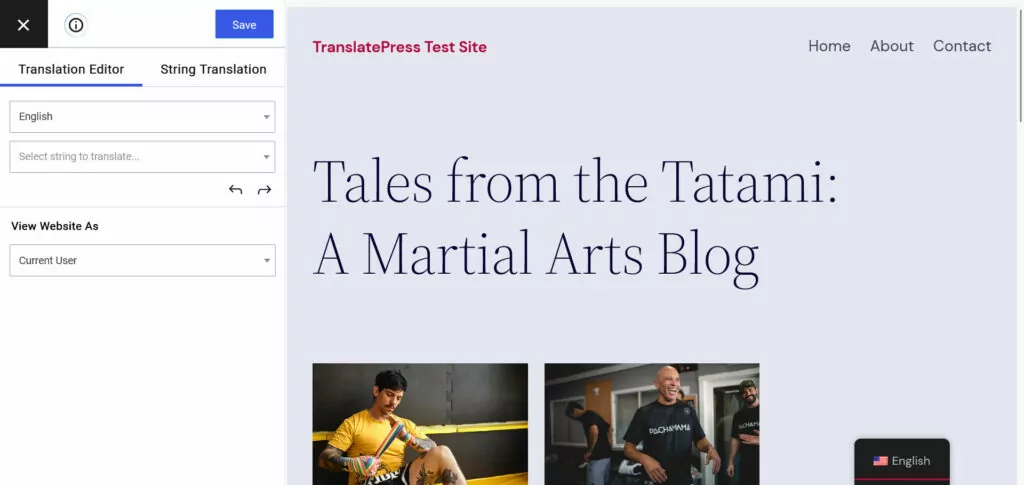
Use the preview window on the right navigate to the pages you want to provide another language for. Pick any of the displayed text via the drop-down menu, left and right arrows, or directly from the page.
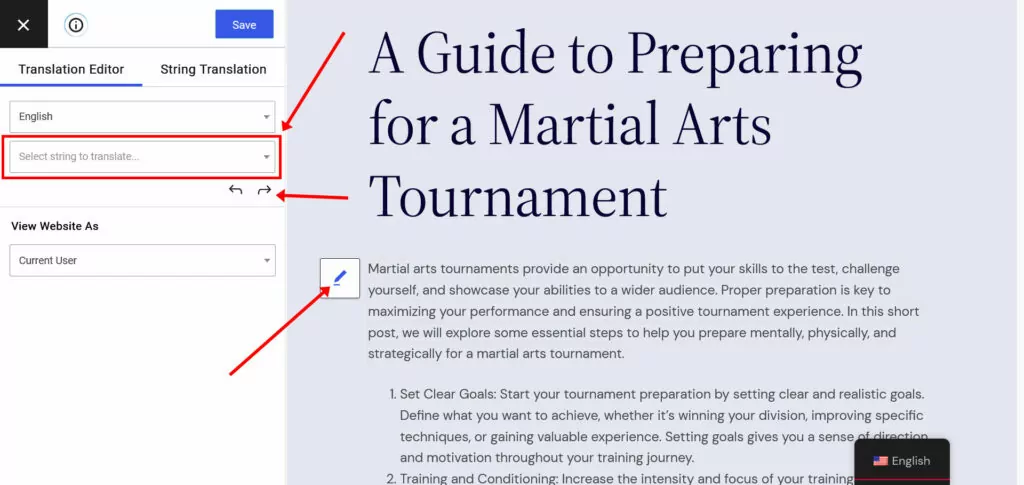
After that, all you have to do is add the translation in the box that appears and click the Save button.
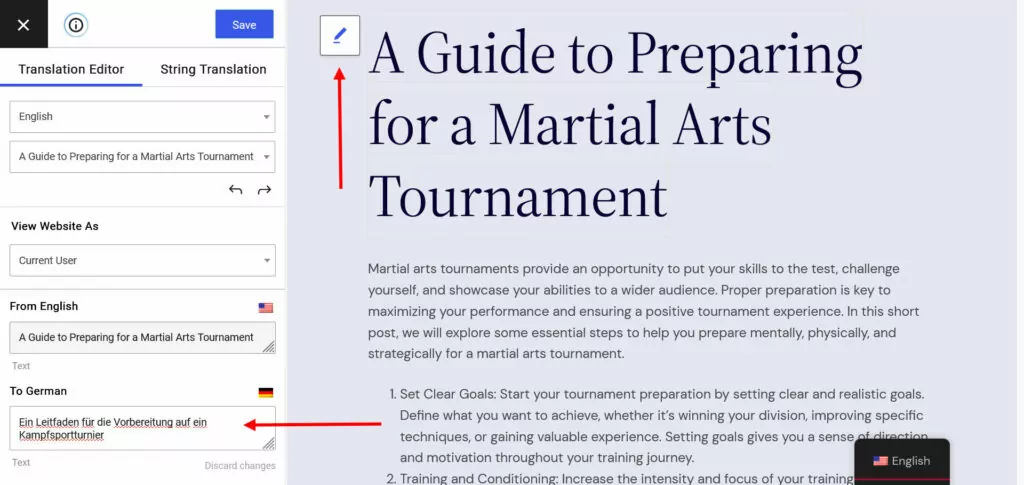
When you do, the translated text will immediately appear on your website and visitors can easily change to their preferred language with the customizable switcher.

Provide Localized Images
Visuals add a lot of cultural relevance to your content and they can also include text. For that reason, they often have to be translated, too.

TranslatePress makes that easy as well. Simply select a visual from the TranslatePress interface and provide an alternative on the left. Save and you are done. It’s just as easy as translating text. It helps with image SEO, too!

Use Automatic Translation
First of all, you should never only rely on machine translation. That just means inviting similar translation fails and mistranslations as we have seen above.
At the same time, it can still be a great tool to save time, effort, and money. That’s why TranslatePress offers automatic translations via Google Translate and DeepL. Switch it on under Settings → TranslatePress → Automatic Translation. Acquire and paste an API key and save to activate it.
Note that the free version of TranslatePress only supports automatic translation via Google Translate. To enable DeepL, you need the premium version of the plugin.

For premium TranslatePress users, you don’t have to worry about generating API keys or any of that technical stuff. Thanks to TranslatePress AI, you only need to activate your license, choose your languages, and enable automatic translation.
From there, TranslatePress AI will take over and translate your entire website content using a combination of the world’s leading neural machine AI translation services, such as DeepL, Google Translate, and Microsoft Translator.
Once machine translation is active on your site, when you choose text from the TranslatePress interface, you will automatically find its translation in the respective field. Here, you can adjust it as necessary and then publish it in the usual way.
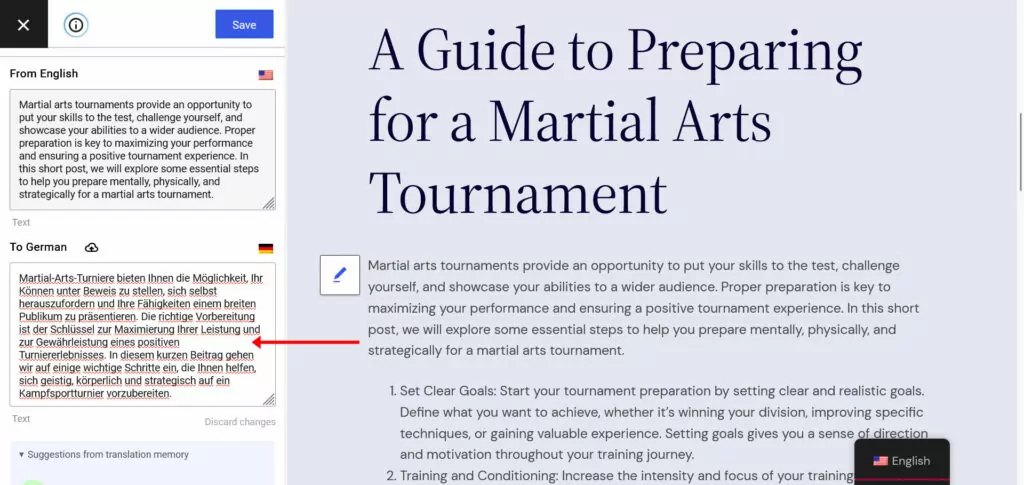
Take Advantage of Multilingual SEO
TranslatePress Pro also comes with a multilingual SEO pack. To make sure your translations don’t fail to rank in search engines, it allows you to translate your page URLs, SEO titles, meta descriptions, ALT tags, and other important SEO markers.

The SEO Pack also creates multilingual sitemaps and works with most of the popular WordPress SEO plugins. If you want to learn more about this topic, read our guide on SEO for new websites.
Start With the Free Plugin
TranslatePress comes in both a free and paid version with three different pricing plans. The free version allows you to add one additional language to your WordPress site. If you want access to the SEO Pack and automatic translation with DeepL, these are part of TranslatePress Pro, which also includes these features:
- Browse as user role – Look at your site as a specific user role in the translation editor.
- User language-specific navigation – Display different menus for different languages.
- Automatic user language detection – Automatically show your website in a user’s preferred language (via browser settings or location).
- Translator accounts — Make working with translation agencies and freelancers easier by allowing them to do translations directly on your site.
TranslatePress Multilingual
Wrapping Up
So, that was a long list of translation fails and mistranslations with extra hilarity mixed in. What can we learn from the above?
First of all that apparently you shouldn’t translate your brand, products, or slogans into neither Chinese or Spanish. Both languages appear to be absolute minefields when it comes to translation (if you want to translate your Spanish website into English, we’ve got your back).
Secondly, that you should always check your translations from multiple angles. Especially converting marketing materials into another language is not easy and can land your company on a list like this involuntarily.
Thirdly, we should learn that, if you do get a translation wrong, you shouldn’t feel too bad about it. Even million-dollar companies produce translation fails of the highest proportion. The best you can do is laugh about it, fix it, and move on with your life.
What is the biggest real-life translation fail you have experienced? Share it with us in the comments below so we can have a laugh together.

